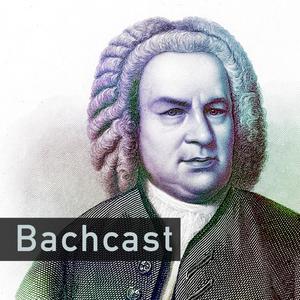
Bachcast - biberfan
John Hendron
Discover outstanding recordings of Bach's music and some of the interesting details in Bach's works. Each episode is dedicate to one work by J.S. Bach.
- Bachcast 62: English Suite #6 BWV 811
Bach's collection of English Suites are French-inspired keyboard suites. In the sixth suite, he starts with an elaborate prelude that starts slow then takes on motion through counterpoint. The dual sarabandes and dual gavottes are the two dance sets of special interest, as is the concluding gigue, borrowing the affect of the trills from the opening prelude.
25 May 2020, 7:01 pm - 23 minutes 58 secondsBachcast 61: Sonata, BWV 1020
Shownotes
Performances by:
- Red Priest, Johann, I'm dancing...
- Ashley Solomon and Terrence Charlston, Bach Flute Sonatas, Volume 2
- Reinhard Goebel (Musica Antiqua Köln), Kammermusik
- Amandine Beyer and Edna Stern, CPE Bach Violin Sonatas
11 February 2019, 1:44 am - 21 minutes 22 secondsBachcast 60: Cantata, Der Herr Denket An Uns, BWV 196
Shownotes
I like the intimate nature of this cantata, where the "chorus" of soloists also take on their own roles beyond singing together. Many commentators believe this to have been intended for a wedding celebration.
Links
27 January 2019, 11:00 pm - 24 minutes 40 secondsBachcast 59: Harpsichord Concerto, BWV 1054
My first discovery of the world of baroque music is tied to this very concerto. I survey a number of excellent recordings.
- Andreas Staier with FBO
- Francesco Cera with I Barocchisi
- Pierre Hantaï with Le Concert Français
- Sergio Ciomei with Europa Galante
The harpsichord concertos by Bach are believed by some to all be arrangements of concertos Bach originally wrote for different instruments. In the case of BWV 1054, we have the surviving version for violin, the Concerto in E, BWV 1042. The harpsichord version differs, with Bach adding more idiomatic material for the harpsichord in several sections. Formally, the first and second movement contain more musical material and a short finale closes the concerto in the similar affable, cheery style that opened the concerto with a major triad.
18 November 2018, 9:00 pm - 32 minutes 13 secondsBachcast 58: Suite for Cello in G, BWV 1007
Show Notes
I first discovered the cello suites by accident, exploring new works by Bach in middle school after falling in love with his harpsichord concertos. Within my freshman English class, my teacher eventually struck up a conversation with me about Yo-Yo Ma's rendition and how he liked listening to the album on cassette tape while on an exercise bike. I'd just been exploring the suites and I remember finding someone else who so enjoyed them was a real treat.
Since high school I have colllected a number of favorite recordings, and among dances of the first suite, the opening Prelude and concluding Gigue are my favorites.
Performers in this episode include:
- Yo-Yo Ma (1983 CBS Masterworks)
- Yo-Yo Ma (2018 Sony Classical)
- Kuniko (2017 Linn Records)
- Bruno Cocset (2002 Alpha)
- Pieter Wispelwey (2012 Evil Penguin Records)
- Paolo Pandolfo (2004 Glossa)
2 October 2018, 4:21 pm - 44 minutes 33 secondsBachcast 57: Toccata and Fugue in D minor, BWV 538
The 'Dorian' Toccata and Fugue for organ gets its name from the absence of a key signature in the score. In the first movement, Bach sets off with a strong theme that gets treated similarly to the theme from a concerto, bouncing between "ripieno" and "concerto" textures. Likewise, he employs harmonic progressions in similarity to Venetian composers' practice in concertos from strings. It's a powerful opening that is counterbalanced with a slower-moving fugue theme. The fugue and countersubjects introduce the opportunity for some real dissonance which Bach eventually breaks out of pure harmony with and rhythmically drives the whole idea home at the end.
The two featured performances on this episode come from:
- Leo Van Doeselaar (Etcetera)
- Ton Koopman (Teldec Das Alte Werk)
I also share an earlier clip of Koopman from his recording on the Archiv Produktion label, (p) 1984.
25 June 2018, 1:11 am - 31 minutes 17 secondsBachcast 56: Partita no. 3 for violin, BWV 1006/1006a
Show Notes
Bach's third partita is most famous for its gavottes en rondeau and it's opening preludio. Not only is the preludio easily recognizable today due to its popularity, but it was no doubt was popular in Bach's own time, as he re-used the material in arrangements for strings for two cantatas. In addition, he made an arrangement for another instrument, most likely the lute.
Performers today, both in response to the competition for recordings and to the rise of the historically-informed performance practice, have a lot in this partita (read: suite of dances) from which to make personal decisions. The normal ones are there, such as tempo, or a legato vs. detached articulation. But how we feel the rhythm and where we place emphasis with articulation is another decision, typically articulated as a lens on big phrases versus note groupings (microphrases). Typically the slower-played renditions will focus on the smaller groups of notes, which we might traditionally call "articulation" decisions. In the recordings chosen for this episode, a third element also creeps in: the tradition of this piece, most notably the preludio, for being a "show piece" for the violin. The variety presented here will certain elicit some different responses. Both do well to highlight the richness of the music.
The technical ability of both Isabelle Faust and of Rachel Podger, I believe, make their recordings both strong and they tend to shy from any major controversy in their interpretive decisions.
Other renditions push or pull our assumptions in both fast/furious and slow/deliberate directions. Enjoy!
- Phorion for orchestra by Lukas Foss, conducted by Leonard Bernstein
- Enrico Onofri (violin)
- Elizabeth Wallfisch (violin)
- Rachel Podger (violin)
- Amandeine Beyer (violin)
- Axel Wolff (lute)
- Paul Galbraith (modified guitar)
- Gunar Letzbor (violin)
- Monica Huggett (violin)
- Skip Sempé and Olivier Fortin (harpsichords)
- Red Priest (ensemble, arranged for recorder, violin, and continuo)
23 June 2018, 2:28 pm - 31 minutes 28 secondsBachcast 55: Fugue in G minor, BWV 885
Shownotes
This is in fact the 54th episode, but I got ahead of myself in the recording. Our next podcast will be #54, so enjoy here #55.
This fugue is a great example of great things in small packages. Bach's use of counterpoint is heightened when two voices highlight his countersubject and subject when the rhythmic motifs align to allow harmonization of the themes.
Performances include:
- Brad Mehldau, After Bach
- Christophe Rousset, The Well-Tempered Clavier I&II
- Emerson Quartet, Bach Fugues
- The Bach Players, Bach Arranging and Arranged
- Angela Hewitt, The Well-Tempered Clavier, Book II
- Fretwork, Alio Modo
17 June 2018, 8:09 pm - 54 minutes 44 secondsBachcast 54: Partita no. 1, BWV 1002
Bach's first partita from his Sei Solo a Violino senza Basso accompagnato is a set of four baroque dances coupled with doubles, or variations of the dances that preceed the first. There's a tight connection between the themes across the dances which is only intensified by the inclusion of variations for each one.
The performances here show very viable interpretations but the ripe opportunity for different interpretations. These performers take Bach's working material and vary it to their own devices, from Bach's use of double stopped chords at rhythmically-important places, of both small and big phrases, of the tempos of dances, and improvisation, as much as these performers feel allowed, through ornaments and through the decoration of phrases.
Performances sampled:
- Gunar Letzbor (Pan Classics)
- Viktoria Mullova (Philips Classics)
- Viktoria Mullova (Onyx)
- Gidon Kremer (ECM New Series)
- Itzhak Perlman (EMI)
- Hélène Schmitt (Alpha)
- Isabelle Faust (Harmonia Mundi)
We also open with a quotation from a solo sonata by Johann Pisendel from Johannes Pramsohler (Bach & Entourage, Audax, 2015).
16 June 2018, 4:46 pm - 43 minutes 20 secondsBachcast 53: Concerto(s) for 2 Soloists, BWV 1043 and 1062
Bach penned two versions of a concerto for two soloists: 1043 for two violins in D minor and 1062 for 2 harpsichords in C minor. The transition likely is to accommodate the compass of the keyboard instruments.
It's believed the violin version preceded the one for two harpsichords. We listen to a variety of performances and settle on liking ones where the character between soloists is clear enough to differentiate the musical dialog taking place between the two solo parts.
Featured performances from:
- The Academy of Ancient Music (Harmonia Mundi)
- The English Concert (DG Archiv)
- Café Zimmermann (Alpha)
- Freiburg Baroque Orchestra (Harmonia Mundi)
- Red Priest
- Musica Amphion (Brilliant Classics)
4 June 2018, 2:34 am - 20 minutes 23 secondsBachcast 52: Fantasia in G minor, BWV 917
In this episode, I explore the desire to realize this piece using an instrument that both has good attack but also sustaining power. It feels like an excellent candidate for the piano.
Features a performance by Andreas Staier.
2 June 2018, 3:20 pm - More Episodes? Get the App
Your feedback is valuable to us. Should you encounter any bugs, glitches, lack of functionality or other problems, please email us on [email protected] or join Moon.FM Telegram Group where you can talk directly to the dev team who are happy to answer any queries.
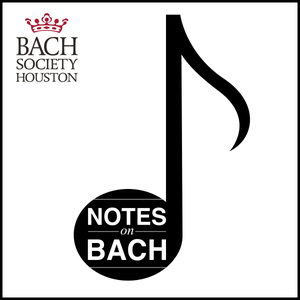 Notes on Bach
Notes on Bach
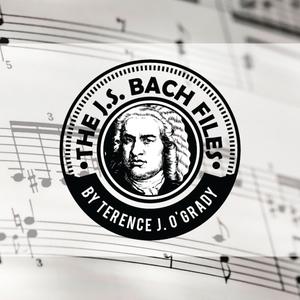 The J. S. Bach Files Podcast
The J. S. Bach Files Podcast
 Sunday Baroque Conversations
Sunday Baroque Conversations
 Baroque podcast from Magnatune.com
Baroque podcast from Magnatune.com
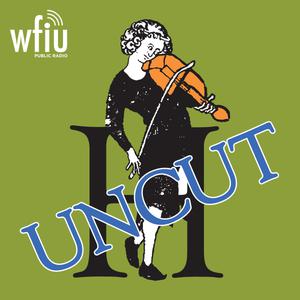 Harmonia Uncut
Harmonia Uncut
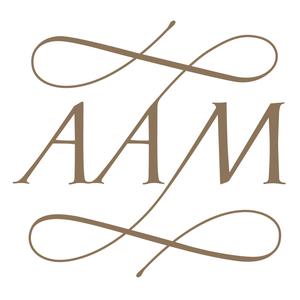 Academy of Ancient Music
Academy of Ancient Music